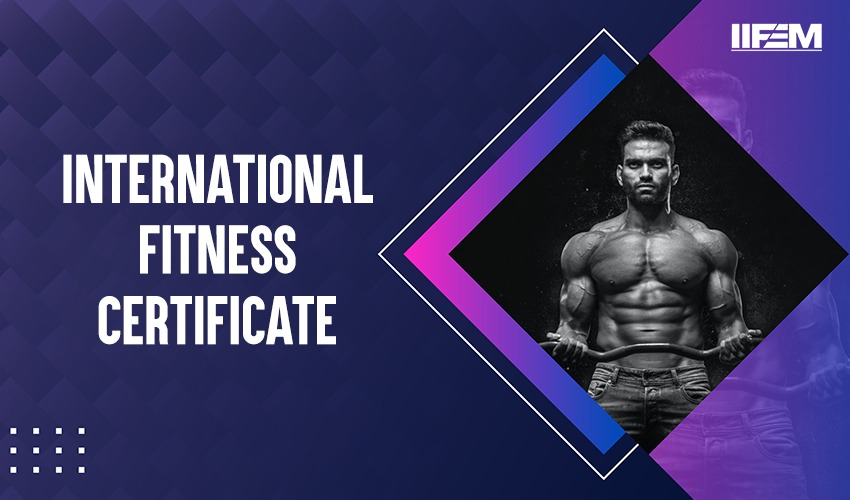
How to Avoid the Top 5 Mistakes New Gym Trainers Make
Starting a career as a fitness trainer is exciting, but beginners often make mistakes that can lead to injuries. In fact, around 41% of athletes get hurt during workouts. With the right knowledge and support, new trainers can avoid these problems and build a strong, successful career from the start.
- Focusing Only on Workouts, Not on Assessments
One of the most common mistakes beginners make is jumping straight into exercise programming without understanding the client’s history, goals, or movement patterns. Without proper assessments, even the best workouts can backfire. Smart trainers use fitness assessments as a foundation to deliver safe, custom results.
- Neglecting Communication Skills
Being knowledgeable isn't enough if a trainer can't communicate well. Many new professionals overlook the importance of listening, motivating, and explaining techniques clearly. Building trust and rapport with clients often outweighs technical skills. Effective communication is a key trait that separates good trainers from forgettable ones.
- Skipping Continued Education
Some trainers think that once they complete a gym trainer course, they know it all. But fitness science evolves. Not staying updated on new training methods, recovery techniques, or nutrition strategies can leave trainers behind. Consistent upskilling through a gym instructor course or related certifications keeps them relevant and informed.
- Overpromising Quick Results
New trainers often feel pressured to impress clients quickly. This can lead to promises of rapid weight loss or muscle gain without setting realistic timelines. Such claims damage credibility when results don’t match expectations. Successful trainers focus on sustainable progress and educate clients about what truly works.
- Ignoring Business and Client Retention Skills
Training knowledge alone doesn’t build a career. Many new trainers fail to understand the business side of fitness. Learning how to retain clients, manage time, and build a brand is just as important. Trainers who master client service and basic business strategy thrive longer in the industry.
How IIFEM Helps Trainers Avoid These Pitfalls?
IIFEM (International Institute of Fitness Excellence and Management) understands the hurdles new trainers face. Our fitness trainer course is designed not just to teach exercise science, but also to build real-world coaching and communication skills. The programs offer structured learning and practical application, ensuring trainers are job-ready from day one.
Regular doubt-clearing sessions and personal mentorship give IIFEM students a strong support system. Trainers are not left on their own after enrollment. Whether it’s brushing up on anatomy or getting help with client planning, the institute offers continuous handholding throughout the course.
Courses like the Advanced Personal Trainer Course, Diet Management Specialist, and Yoga for Muscle Building cover everything from biomechanics and program design to career strategy and client retention. Trainers not only learn how to coach but also how to grow their careers.
With a strong alumni network, post-course guidance, and internationally relevant certification, IIFEM positions new trainers to avoid early career mistakes and build a lasting presence in the fitness industry.
Want to avoid the common traps and grow faster as a fitness professional? Choose IIFEM and start your journey the right way.
FAQ’S
1. What are the most common mistakes new gym trainers make?
New gym trainers often skip client assessments, overpromise quick results, neglect communication, avoid continuing education, and ignore business skills. These mistakes can slow growth and harm client trust.
2. Why are client assessments important before starting a workout program?
Client assessments help trainers understand a person’s fitness level, goals, and any limitations. This allows them to design safe and effective workout plans. Skipping assessments can lead to injuries or poor results, so they’re a crucial first step in any training journey.
3. Do gym trainers need to continue learning after certification?
Yes. Fitness science is always evolving. Ongoing education through advanced gym trainer certification or workshops keeps trainers updated and competitive in the industry.
4. How can communication skills impact a trainer’s success?
Strong communication builds trust, improves motivation, and helps explain exercises clearly. Trainers who connect well with clients tend to retain them longer.
5. How does IIFEM help new trainers avoid early career mistakes?
IIFEM offers structured courses, regular doubt-clearing sessions, mentorship, and practical skill-building to ensure trainers are confident, job-ready, and capable of building a long-term fitness career.
Category
Recent Blog

Why is insulin neede... Read more
July 05,2023
10 Tips for Strength... Read more
August 14,2023
Sample Strength and ... Read more
September 06,2023
Why are some lifters... Read more
September 15,2023
Why do Barbells and ... Read more
September 22,2023
Secret Routine to Bu... Read more
September 26,2023
When to use Insulin,... Read more
September 28,2023
Why lifters should u... Read more
September 29,2023
What is power traini... Read more
October 09,2023
The Future of Fitnes... Read more
October 17,2023
Why Pursue a Fitness... Read more
October 21,2023
Career Paths for Cer... Read more
October 31,2023
Elevating Your Perso... Read more
November 21,2023
Gym Safety Correctiv... Read more
December 26,2023
5 Different Types of... Read more
December 27,2023
Elevate Your Fitness... Read more
December 28,2023
Embark on Your Fitne... Read more
January 24,2024
Mastering Nutrition ... Read more
January 24,2024
Building Strength wi... Read more
January 27,2024
Boost Your Career: B... Read more
January 27,2024
7 main reasons why y... Read more
February 15,2024
Unlocking Essential ... Read more
February 19,2024
Unlock Your Fitness ... Read more
February 20,2024
Unveiling the Path t... Read more
February 28,2024
How to choose the ri... Read more
February 29,2024
Strengthening Weak S... Read more
March 20,2024
How a Fat Loss and E... Read more
March 27,2024
Transformative Insig... Read more
March 27,2024
The Importance of a ... Read more
April 10,2024
Mastering the Art of... Read more
April 22,2024
Unlocking Your Caree... Read more
April 23,2024
The Evolution of Per... Read more
May 27,2024
Elevate Your Fitness... Read more
May 28,2024
Choosing the Right P... Read more
June 25,2024
Role of Protein in F... Read more
June 26,2024
Career Opportunities... Read more
June 27,2024
How Fitness Certific... Read more
July 29,2024
Building a Successfu... Read more
July 30,2024
Qualities to Look fo... Read more
August 21,2024
How Gym Trainer Cert... Read more
August 28,2024
How Fitness Trainer ... Read more
September 20,2024
The Role of a Person... Read more
September 23,2024
Immunity Boosting Pl... Read more
October 17,2024
How Fitness Trainers... Read more
October 22,2024
Transform Your Fitne... Read more
October 28,2024
Certified vs. Uncert... Read more
November 22,2024
The Role of Nutritio... Read more
November 25,2024
The Importance of Co... Read more
December 28,2024
5 Powerlifting Train... Read more
December 28,2024
How Personal Trainer... Read more
January 24,2025
Essential Online Nut... Read more
January 25,2025
How Personal Trainer... Read more
January 27,2025
5 Immunity-Boosting ... Read more
March 01,2025
What to Look for in ... Read more
March 01,2025
The Impact of a Pers... Read more
March 27,2025
The Benefits of Beco... Read more
March 28,2025
How to Choose the Ri... Read more
April 24,2025
Turbo Test: Unlockin... Read more
April 25,2025
How to Build a Perfe... Read more
April 29,2025
10 Powerful Yoga Asa... Read more
May 24,2025
How to Track Your Ca... Read more
May 26,2025
Fast-Track Your Fitn... Read more
May 28,2025
Top Career Paths You... Read more
May 29,2025
10 Reasons to Enroll... Read more
June 23,2025
How to Turn Your Pas... Read more
June 28,2025
Trainer vs Coach Wha... Read more
June 30,2025
How IIFEM Plans to C... Read more
July 01,2025
Go Global with IIFEM... Read more
July 11,2025
No English No Proble... Read more
July 25,2025
How Education Can El... Read more
August 19,2025
Real Stories from II... Read more
August 20,2025
Why Gym Owners Prefe... Read more
August 26,2025
How Science Based Tr... Read more
August 31,2025
Why an International... Read more
September 10,2025
What Makes IIFEM the... Read more
September 15,2025
How to Build a Succe... Read more
September 22,2025
Your Passion and Our... Read more
September 27,2025
Fat Loss & Endurance... Read more
October 16,2025
Benefits of Whey Pro... Read more
October 21,2025
Strength and Conditi... Read more
October 27,2025
From Trainer to Gym ... Read more
October 29,2025
Powerlifting Trainin... Read more
November 12,2025
Pre-Workout vs Post-... Read more
November 17,2025
Building a Hybrid Fi... Read more
November 19,2025
Why Most Weight Loss... Read more
November 21,2025
Why Great Coaches Do... Read more
December 18,2025
Integrating Yoga for... Read more
December 18,2025
From Fitness Coach t... Read more
December 18,2025
Personal Trainers Sa... Read more
January 16,2026
Diploma in Gym Manag... Read more
January 16,2026



